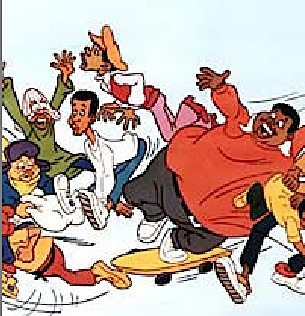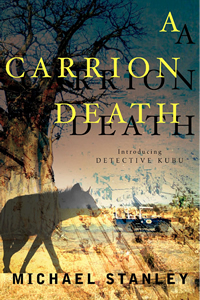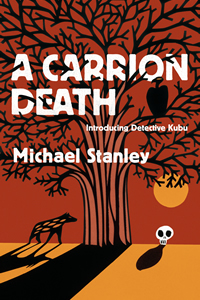Happy Independence Day, everybody!
For those of you not currently domiciled within the borders of the United States, and thus not intimately acquainted with those kids down the block who evidently blandished some weak-willed adult into driving them either to the nearest Native American reservation to purchase fireworks illegal in this jurisdiction or to Chinatown to purchase firecrackers ostensibly for the next lunar new year, today is the day that we here in the Fifty like to celebrate the power of the written word by watching things blow up.
Seriously, this holiday is about writing, at base: it’s the anniversary of the signing of the Declaration of Independence, not the beginning of the Revolutionary War. A handful of brave people got together and put their John Hancocks (literally) on a seriously seditious (and quite stirringly-written) document, one that threatened the overthrow of their current government.
It might have been just a piece of paper, but signing that document generated some pretty serious fallout, by the way, on a personal as well as a national level. Thomas Jefferson, the author, and John Hancock, the guy who signed first and largest to encourage others to believe that they would not be killed, imprisoned, or have their property confiscated were among the few signers who were not — you guessed it — killed, imprisoned, or deprived of property as a result.
Let no one say the written word is not powerful. But the fact that this national day of remembrance for the consequences of a few words scribbled on paper invariably results in a few dozen kids’ pen-using fingers being blown off by bottle rockets is, at best, ironic.
Enough national history. Back to the care and feeding of the elevator pitch.
What a lot we’ve learned in the past couple of weeks, eh? We’ve talked about how to identify your book’s category (June 26-27) and target market (June 27-28), coming up with several selling points (June 29-30), up to and including what’s fresh about your approach (June 19, July 1), inventing a snappy keynote statement (July 1-2), and pulling all of these elements together into the magic first 100 words (July 2).
All of that, my friends, will enable you to move gracefully and professionally into conversation with anyone even vaguely affiliated with the publishing industry. Now you’re ready to start practicing what to say after that.
To put it another way, from here on out we’re going to be talking about what you should say after the agent of your dreams responds to your magic first hundred words with, “Why, yes, Stalwart Writer, I would like to hear more about this marvelous book of which you speak. Enlighten me further, and awe me.”
Okay, so maybe the average Manhattanite agent doesn’t speak like an extra in a production of Robin Hood. The fact remains, if you’ve been following this series and doing your homework, you already have something prepared for that precious moment when someone in the industry turns to you and says, “So, what do you write?”
Now, we’re preparing for that even more fruitful moment when an agent sighs, glances longingly at the pasta bar just a few feet ahead of her, and says, “Yeah, sure, intrepid writer who has just accosted me, you may have 30 seconds of my time.”
Moments like this were just made for the elevator speech.
For those of you joining us late in the series, an elevator speech is a 3 — 4 sentence description of the protagonist and central conflict of your book, couched in the present tense. As we discussed yesterday, it is not a plot summary, but an introduction to the main character(s) by name and an invitation to the listener to ask for more details.
Believe it or not, most of you probably already have a fair amount of experience constructing an elevator speech for your book: such a description is typically the second paragraph of a classically-constructed query letter. This is hardly accidental — a pitch is, after all, more or less a verbal query letter. (If anything I’ve said in this paragraph is a major surprise to you, I would strongly advise checking out the mysteriously-titled HOW TO WRITE A QUERY LETTER category on the list at right.)
Not entirely surprisingly, then, query letters and elevator speeches often share focus problems. All too often, for instance, the constructors of both will go off on tangents, detailing how difficult it is to find an agent or boasting about how this is the best book ever written. And like the descriptive paragraph of a query letter, elevator speeches all too often get bogged down in plot details.
But summarization is not what’s required, in either instance — and if more aspiring writers realized that, people on both ends of the querying and pitching processes would be significantly happier, I suspect.
Do I hear some of you out there moaning, or are you merely thinking very loudly? I could have sworn I just heard someone cry, “But Anne, I spent MONTHS over my query letter, and I never got the descriptive part under two-thirds of a page! How do you expect me to be able to make my book sound fascinating in half that many words, and out loud?”
In a word: strategy. (To be followed shortly by a second word, as well as a third and a fourth: practice, practice, and practice.)
Here are a few tips:
1) Be specific about who your protagonist(s) is (are) and what’s happening to him/her/it/them.
Nothing makes a hearer’s eyes glaze over faster than a spate of generalities that might apply to the nearest 100,000 people. In a novel or memoir, events do not happen to people in general: they happen to a specific person or group of people with individual quirks. Give a taste of that.
I know it’s hard in such a short speech, but believe me, a single memorable character trait or situational twist is worth paragraphs and paragraphs of generalities.
2) Emphasize what is fresh about your story, not its similarities to other books.
If I had a penny for every time I’ve heard a pitcher say, “It’s just like BESTSELLER X, but with Twist Y,” I would build a rock-candy mountain just south of Winnipeg and invite all Canadian children to feast for a week. It’s just not very efficient use of brief elevator speech time; the keynote is a better place to draw such parallels, if you feel you must.
Why isn’t it efficient? Because the elevator speech is NOT about indicating genre or book category — which, to someone in the industry, is precisely what citing an earlier successful book in your chosen book category achieves — but once you’ve told an agent or editor what your book category is, getting specific about a similar book is actually a trifle redundant.
It also makes your book seem less original, at least at the elevator speech stage — here is where you need to wow your hearers with the uniqueness of your premise, your protagonist, and your approach. Making your book sound like a rehash of a well-worn concept is not usually the best way to accomplish that.
3) Try not to bottom-line the plot — and definitely avoid clichés.
Steer clear of sweeping statements on the order of, “…and in the process, he learned to be a better axe murderer — and a better human being.” Or “Their struggles brought them closer together as a couple AND won her the election.” Or, heaven forbid, “Can they learn to live happily ever after?”
Writers often incorporate the sort of terminology used to promote TV shows and movies — but in an elevator speech (or a query letter — or a pitch, for that matter), the last reaction a writer wants to evoke is, “Gee, this sounds like the movie-of-the-week I saw last night.”
Translation: this technique doesn’t show off your creativity as a plot-deviser, any more than the use of clichés would display your talent for unique phraseology. You want to make your story sound original and fresh, right?
4) Enliven your account with concrete, juicy details that only you could invent.
Yes, in 3-4 sentences. You’re a writer: making prose interesting is what you DO, right?
5) Include at least one strong MEMORABLE image.
This should be a mental picture that your hearer will remember after you walk away, business card and request for the first fifty pages clutched firmly to your heaving bosom.
Ideally, this image should be something that the hearer (or our old pal Millicent, the agency screener) has never heard before. And it needn’t be a visual detail, either: the other senses tend to be seriously under-utilized in elevator speeches.
Just makes sure it sticks in the mind.
6) Present your protagonist as the primary actor in the plot, not as the object of the action.
You wouldn’t believe how many pitches portray characters who only have things happen TO them, rather than characters who DO things to deal with challenging situations. If I had a penny for each of THOSE I’ve heard, I’d build THREE of those rock-candy mountains, one in each of the NAFTA nations, for the delight of local children.
Don’t underestimate the importance of establishing your protagonist as active: believe me, every agent and editor in the biz has heard thousands of pitches about protagonists who are buffeted about by fate, who are pushed almost unconsciously from event to event not by some interior drive or conflict, but because the plot demands it.
Long-time readers of this blog, chant with me now: “Because the plot requires it” is NEVER a sufficient answer to “Why did that character do that?”
The books being pitched may not actually have passive protagonists — but honestly, it’s very easy to get so involved in setting up the premise of the book in an elevator speech that the protagonist can come across as passive, merely caught in the jaws of the plot.
There are a few code words that will let an industry-savvy listener know that your protagonist is fully engaged and passionately pursing the goals assigned to her in the book. They are, in no particular order: love, passion, desire, dream, fate (kismet will do, in a pinch), struggle, loss, and happiness. Any form of these words will do; a gerund or two is fine.
I’m serious about this. This is recognized code.
7) Make sure that the tone of your elevator speech matches the tone of your book.
You’d be surprised at how often this basic, common-sense principle is overlooked by your garden-variety pitcher. Most elevator speeches and pitches come across as deadly serious — usually more a reflection of the tension of the pitching situation than the voice of the book.
This undersells the book, frankly. If the book is a steamy romance, let the telling details you include be delightfully sensual; if it is a comic fantasy, show your elves doing something funny. Just make sure that what you give is an accurate taste of what a reader can expect the book as a whole to provide.
Next time, I shall give a few concrete examples, so you may see these rules in practice. In the meantime, happy Independence Day, everybody, and keep up the good work!


























